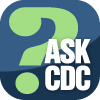Protection from H1N1
[Announcer] This podcast is presented by the Centers for Disease Control and Prevention. CDC – safer, healthier people.
Welcome to Ask CDC, the weekly podcast that answers your questions. I'm your host, Susan Laird.
We've received a lot of questions related to the swine flu outbreak, which is really called H1N1 flu. The question we'll answer today is what can I do to protect myself and my family from H1N1?
H1N1 infection can cause a wide range of symptoms, including fever, cough, sore throat, body aches, headache, chills, and fatigue. People with H1N1 flu can also have diarrhea and vomiting. Like seasonal flu, H1N1 flu in humans can vary from mild to severe. Severe disease with pneumonia or respiratory failure and even death is possible with H1N1 influenza infection.
Antiviral drugs, prescription medicines that fight against the flu by keeping flu viruses from reproducing in the body, can treat or prevent infection in high-risk individuals. Certain groups might be more likely to develop a severe illness from H1N1 influenza infection, such as persons with chronic medical conditions, and when a high-risk individual gets flu or is exposed to flu, antiviral drugs are often recommended. They are also recommended for some persons who have been in contact with people diagnosed with H1N1 influenza. Antiviral drugs may also be used to treat people who have been infected. These drugs can make the illness milder and make infected people feel better faster.
The main way that influenza viruses are thought to spread from person-to-person is in respiratory droplets of coughs and sneezes. This can happen when droplets from a cough or sneeze of an infected person are propelled through the air and deposited on the mouth or nose of people nearby. Influenza viruses may also be spread when a person touches respiratory droplets on another person or an object and then touches their own mouth or nose, or someone else's mouth or nose, before washing their hands.
There are basic things people can do every day to reduce their risk for getting any infectious disease, including H1N1 influenza. Teach your children and share the information with friends and family.
• Wash your hands often with soap and water, especially after you cough or sneeze. Use an alcohol-based hand cleaner if soap and water aren't available.
• Cover your nose and mouth with a tissue when you cough or sneeze. Throw the tissue in the trash after you use it.
• Avoid touching your eyes, nose, or mouth. That's how germs spread.
And
• Help stop the spread of the virus. If you or your children are sick – don't go to work or send your children to school.
For up-to-date information on H1N1 influenza, please visit www.cdc.gov or call 1-800-CDC-INFO or 1-800-232-4636.
Thanks for listening. To submit your question to Ask CDC, email us at askcdc@cdc.gov.
[Announcer] For the most accurate health information, visit www.cdc.gov or call 1-800-CDC-INFO, 24/7.


